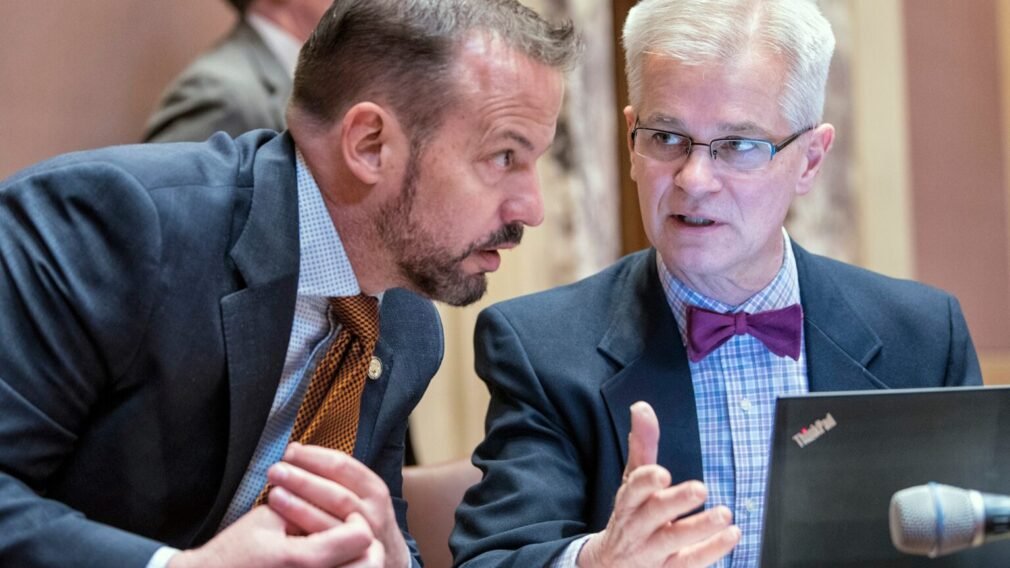Minnesota Lawmakers Discuss Potential Risks of Sports Betting Legalization
On January 8, 2025, the Minnesota Senate Finance Committee hosted a hearing to assess the potential consequences of legalizing sports betting in the state. The session, led by Senator John Marty (DFL-Roseville), brought together researchers, gambling addiction experts, and personal testimonies to shed light on the societal and financial risks of expanded betting access.

The Impact of Gambling Addiction
Throughout the hearing, witnesses shared powerful stories of how gambling has devastated their lives. For instance, one individual recounted losing their family’s savings, retirement funds, and even their children’s college accounts due to a gambling addiction. Meanwhile, researchers presented data linking legalized betting to increased rates of bankruptcy, domestic violence, and mental health crises in other states.
Moreover, mobile betting came under particular scrutiny. Senator Marty described it as akin to carrying a “casino in your pocket,” emphasizing how its accessibility makes it especially dangerous. According to studies, an estimated 2% to 8% of gamblers develop serious problems, and mobile platforms only exacerbate the issue.
A Divided Debate
The hearing revealed deep divisions among lawmakers and stakeholders on whether sports betting should be legalized:
- Supporters argued that regulating sports betting is the most effective way to protect consumers. For example, Senator Matt Klein (DFL-Mendota Heights) plans to reintroduce his bill, which narrowly failed in 2024. His proposal includes a 22% tax on winnings and allocates revenue to addiction treatment programs, youth sports, and tribal communities. Additionally, Klein pointed out that legalization would create a safer alternative to the unregulated black market, which offers no consumer protections.
- Opponents, on the other hand, focused on the risks. Senator Marty expressed concerns that legalization would lead to a sharp increase in gambling addiction and its related harms. He urged lawmakers to consider the societal costs, not just potential financial benefits. Similarly, other critics questioned whether the potential revenue justifies the negative consequences.
Tribal Communities in the Spotlight
Native American tribes, which are central to Minnesota’s gambling landscape, were a key part of the discussion. Senator Nick Frentz (DFL-North Mankato) defended the tribes’ role, rejecting claims that they exploit gambling for profit. Instead, he described them as valuable partners who have consistently supported responsible gaming policies.
Proposed Safeguards
To address the concerns raised during the hearing, Senator Klein’s proposal includes several safeguards:
- A three-hour delay between deposits and betting to prevent impulsive decisions.
- A ban on wagers for college sports events to avoid ethical issues.
- Stricter advertising rules, such as prohibiting ads targeting minors or individuals with gambling problems.
- A dedicated gambling addiction helpline funded by the state.
These measures aim to strike a balance between allowing sports betting and minimizing its potential harms.
What’s Next for Sports Betting in Minnesota?
The tone of the hearing, combined with the restrictive nature of the proposed legislation, has raised significant doubts about the future of sports betting in Minnesota. Lawmakers’ cautious approach, while addressing valid concerns, could make the state’s betting market one of the toughest in the country for operators.
Furthermore, the split opinions among legislators suggest that the bill faces an uphill battle to gain the necessary support. At this stage, optimism for the bill’s success remains limited, leaving the future of legalized sports betting in Minnesota uncertain.
Recommended
